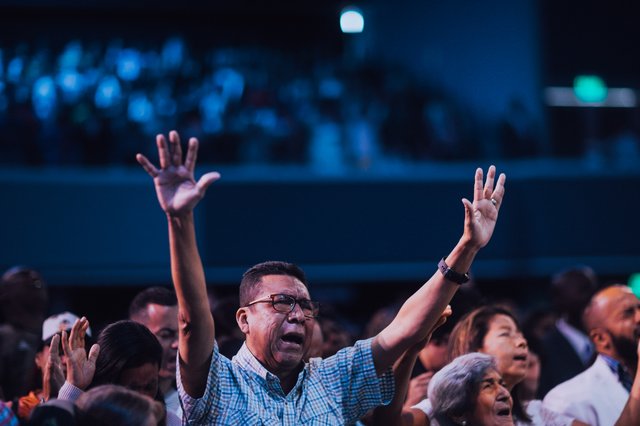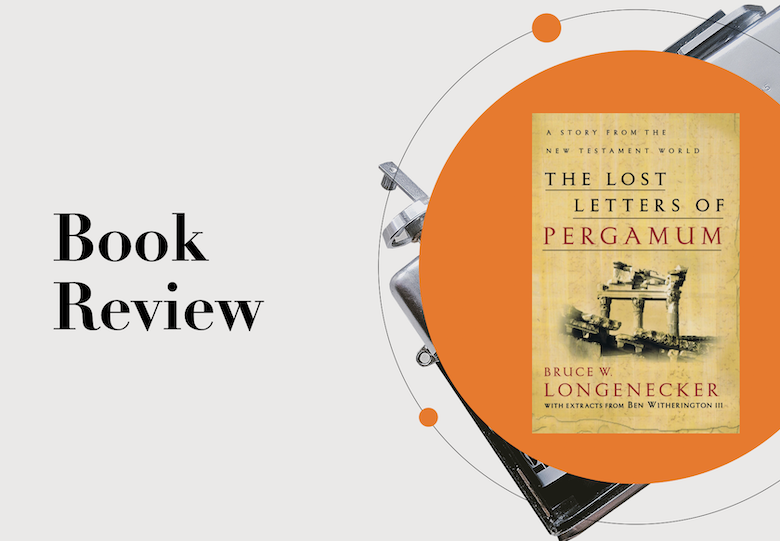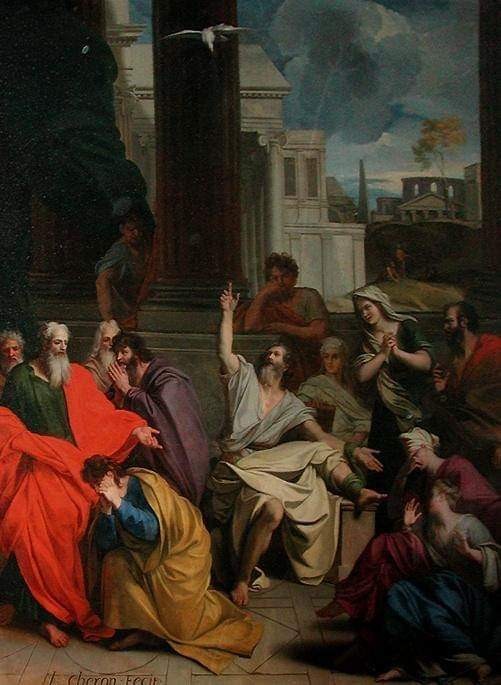Reflections on Ezekiel
Ezekiel 34:17-21 (NIV)
17 “‘As for you, my flock, this is what the Sovereign Lord says: I will judge between one sheep and another, and between rams and goats. 18 Is it not enough for you to feed on the good pasture? Must you also trample the rest of your pasture with your feet? Is it not enough for you to drink clear water? Must you also muddy the rest with your feet? 19 Must my flock feed on what you have trampled and drink what you have muddied with your feet?
20 “‘Therefore this is what the Sovereign Lord says to them: See, I myself will judge between the fat sheep and the lean sheep. 21 Because you shove with flank and shoulder, butting all the weak sheep with your horns until you have driven them away
Introduction
Ezekiel 34:17-21 criticises the strong sheep for harming the weak sheep. The marketplace is intensely competitive. In such an environment, do the strong have a responsibility to care about the weak? I believe this passage from Ezekiel contains an important principle that is relevant to people operating in the marketplace.
Let me share an example. Agile Manufacturing Private Limited is a company that manufactures component parts. The company did well for many years but an economic slowdown hurt its business. Management retrenches a significant number of employees to cut costs.
The affected employees worry they won’t be able to provide for their families and make ends meet. Some people are traumatized. Many people only have enough funds to last a short time. According to a CareerBuilder survey in 2017, 78 percent of Americans say they are living paycheck-to-paycheck to make ends meet.
Sam’s situation is typical. He worked for the company for many years and was a good worker. He is in his early 50s, his wife gave up her career many years ago to take care of the children and they have two teenage children. He had hoped to keep working until his mid-60s to support his children’s education, finish paying off the housing loan and build up a modest nest egg for retirement. Sam takes the news of his retrenchment badly. He worries about finding another good job at his age. He worries that his savings will be depleted. His confidence is shaken and he is embarrassed to tell his family the bad news.
Was management’s decision to retrench justified?
It is not difficult to make a good argument supporting it. Not doing so could jeopardize the whole business, leading to more jobs being lost eventually.
If the retrenchment is justified, does management have a duty to treat the retrenched employees fairly?
For example, should the company provide the affected employees with sufficient notice so they have as much time as possible to look for new jobs and pay them adequate retrenchment benefits to help them tide over the difficult period?
What if the company is in fact performing well and management decides to retrench employees anyway to increase the company’s profitability even further. Is this justified?
You could still make a good argument to support this. Management’s duty is to the company and shareholders and this includes maximizing profit. Many people in the marketplace would accept this as a satisfactory explanation.
At what point does management cross the line from doing what is reasonable and justifiable to being greedy and ruthless at the expense of the weak?
We have all seen situations where one’s pursuit of gain or advantage was at the expense of the weak.
What does Ezekiel have to say about these situations?
Historical Context
In 597 BC King Nebuchadnezzar of Babylon conquered Judah and in line with Babylonian practice at the time deported 10,000 Jews, comprising the upper classes of Jewish society, to Babylon. Ezekiel was among the deportees. In 589 BC Nebuchadnezzar began a siege of Jerusalem which caused great suffering. When Jerusalem fell, Nebuchadnezzar destroyed the city and the Temple, events which Ezekiel had prophesied.
These were traumatic and turbulent times. Many Jews would have felt despair and hopelessness. Ezekiel had a few key messages for them. What had happened to Judah was punishment for its sins; the Jews had been unfaithful to God and did not live in accordance with the Covenant. Ezekiel emphasized God’s sovereignty, national accountability and individual responsibility. Finally, Ezekiel gave the exiles hope; God had not abandoned them and they would be restored in the holy land and the Temple would be rebuilt if they repent and turn away from their sins.
Main Idea
God will judge people who are strong if they unjustifiably harm the interests of the weak.
Outline
Some people are stronger than others because of their wealth, position or specific circumstances.
People in such positions must care about the interests of the weak.
Exegesis
Chapter 34 is one distinct block and should be read as a whole. I have chosen to focus on our passage because I think it has wide application today.
In verses 1 to 16, Ezekiel rebukes the shepherds of Israel because they only care for themselves and not their flock. God will remove the flock from them and care for the flock himself. “Shepherds of Israel” means the nation’s leaders.
Whereas in those verses God judges the shepherds and speaks tenderly about the flock, in verse 17 God turns to judge the flock. The sins of the shepherds do not excuse the sins of the flock.
Verse 17 refers to “one sheep and another” and “rams and goats”. The phrase “one sheep and another” contains no indication that some sheep were stronger than others. This could be a reference to ordinary people. The phrase “rams and goats” refers to the male gender (some versions of the Bible expressly say “male goats”). The implication is that they are stronger than the rest. Some Christian commentators believe this phrase refers to people with power and wealth or to community leaders and elders. They are strong because of their wealth or position.
In verses 18 and 19, the charge against some sheep is that after they took care of their own needs, they then damaged what should have been for the benefit of others. These sheep were strong because of the specific situation they were in. They could damage the pasture and water because they got there first. Strength can be situational.
There is no indication the harm was intentional. It is enough that the harm was caused with careless disregard for the interests of the weak.
In verse 20, there is a reference to “fat sheep and lean sheep”. Some commentators think this refers to the rich and poor. The rich are strong compared to the poor.
Verse 21 is explicit about the abuse, describing the strong as shoving and butting the weak. It is interesting that this picture of sheep in close proximity with each other and shoving and butting each other until some are driven away is reminiscent of a competitive marketplace.
I do not believe the passage prohibits all harm to the weak. That would be unrealistic. Many actions in life have costs and benefits and in some situations, the benefits outweigh the costs.
So when is harm to the weak unjustifiable?
The passage does not address this question explicitly. The text does not give any reasons for why the sheep acted the way they did. However, the language and tone of the text indicate that the attitude of the strong was the problem. They displayed careless disregard and a lack of mercy and justice for the weak. The strong sheep should have cared about the weak but did not. This is consistent with the rest of Scripture which contains numerous passages that the strong should not oppress or mistreat the weak.
Application
In some situations it is obvious when someone is strong and others are weak. The CEO of a company is strong in relation to the company’s employees. However, there are other situations which are less obvious. In our workplace, we may be strong in relation to those who are junior to us, support staff, service providers and customers who depend on us. Strength of course exists outside the marketplace as well. For example, in our homes, we may be strong in relation to our spouse, children, aged parents and domestic helpers.
When we are strong and can harm others, we have a responsibility to consider our actions carefully. In practice, many people would do this when their interests are at stake. However, what people often don’t do is take into account, or place sufficient weight on, the interests of the weak. The weak have no voice and are not able to fight back and the strong suffer little or no consequence neglecting the weak.
Must the strong care about the weak in the marketplace? I believe Ezekiel requires it. When we are strong because of our wealth, position or specific circumstances, it is our responsibility to care about the interests of the weak.
Contributor:
Eugene Lai
Presented by: From the archives of Window to BGST Newsletter June 2019
- Categories:
- Old Testament
- Read
- Scripture
- Tags:
- Eugene Lai



























































